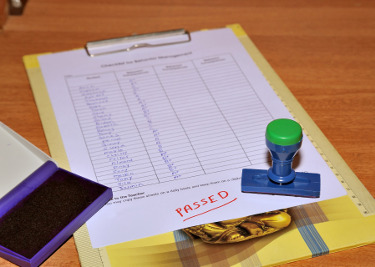 “Excuse me, Sir, do you validate parking?” Okay, we’re not talking about parking validation but something that could cost you a lot more, backup data validation. Your company has a backup disaster recovery solution, so you think you’re good, right? How good is a backed up if the data is corrupted? When was the last time you checked that the files were being properly stored? Don’t wait until you’re dealing with data loss to realize your backup plan has failed you! We encourage you to try one of these 3 methods to ensure that your data is valid.
“Excuse me, Sir, do you validate parking?” Okay, we’re not talking about parking validation but something that could cost you a lot more, backup data validation. Your company has a backup disaster recovery solution, so you think you’re good, right? How good is a backed up if the data is corrupted? When was the last time you checked that the files were being properly stored? Don’t wait until you’re dealing with data loss to realize your backup plan has failed you! We encourage you to try one of these 3 methods to ensure that your data is valid.
Simulated Full Recovery
This is the most reliable method of confirming that your backups are in working order. To do this just run a full recovery to a physical or virtual testing machine. If it fails or takes a long time to complete you may want to consider upgrading or making some changes. Think of it like a fire drill, the best way to test preparedness is to practice, simulate, and improve on it.
Partial/Select File Restoration
This is straight-forward, select a portion of files then restore them to an alternative location. Then you compare the data with the original to make sure everything matches. However, this method has a draw-back; it does not show that all the files are able to be restored to original state, only the files selected to recover can be verified. This might be a good method to use in between a stimulated test recovery, but it should not replace a full comprehensive check.
Backup Verification Tools
 Tools are always a major help in any endeavor. Some backup solutions come with verification tools to use, however if yours does not, it may be time to look into one that does. Backup verification tools help check file sizes, integrity, and give an archive of verification. If something seems amiss, you receive an alert allowing you to resolve the issue before it corrupts or otherwise damages any more files. Another drawback would be that tools can miss human errors since it generally only checks the file size and type.
Tools are always a major help in any endeavor. Some backup solutions come with verification tools to use, however if yours does not, it may be time to look into one that does. Backup verification tools help check file sizes, integrity, and give an archive of verification. If something seems amiss, you receive an alert allowing you to resolve the issue before it corrupts or otherwise damages any more files. Another drawback would be that tools can miss human errors since it generally only checks the file size and type.
It is just as important to check on your backups as it is to have backups! Don’t end up being a fish out of water when disaster strikes.